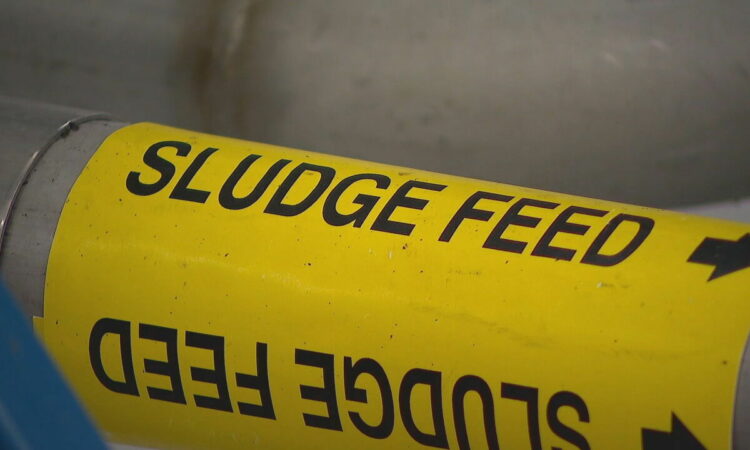Wastewater sludge has been known to contain high levels of “forever chemicals” called PFAS. For years it was spread as fertilizer by Maine farmers, and now that the state has banned that practice, the sludge has been piling up and is now being shipped to our neighbors to the north.
Brad asked the CBS13 I-Team:
“Why is Maine now shipping this sludge to Canada? What are they using it for? Isn’t that country concerned about the impact of PFAS?”
Some of that sludge started being shipped to New Brunswick, Canada only recently.
Casella Waste Systems, which handles the disposal of sludge and biosolids from local wastewater treatment plants, says the state’s landfill could no longer handle how much was being put in.
So, to buy time for a more long-term disposal plan, Casella found a buyer in Canada. That company says it has the permits and capacity to accept all of Maine’s excess sludge and turn it into industrial compost.
The question now is how long will Canada continue to accept Maine’s sludge.
About 130-truck loads of sludge reportedly head to New Brunswick a month.
The province does have guidelines for what biosolids it will accept, but PFAS is not included in that criteria.
Some grass roots organizations in New Brunswick are urging farmers not to use Maine sludge on their fields.
Last month, the province of Quebec issued a moratorium on the importation of sludge from the U.S.
It’s unclear if New Brunswick will follow Quebec’s lead on a possible import moratorium but it’s something the CBS13 I-Team will be following.
In the meantime, Casella says it’s looking for other markets for the sludge, including other states like New York, which don’t have as strict PFAS guidelines.


